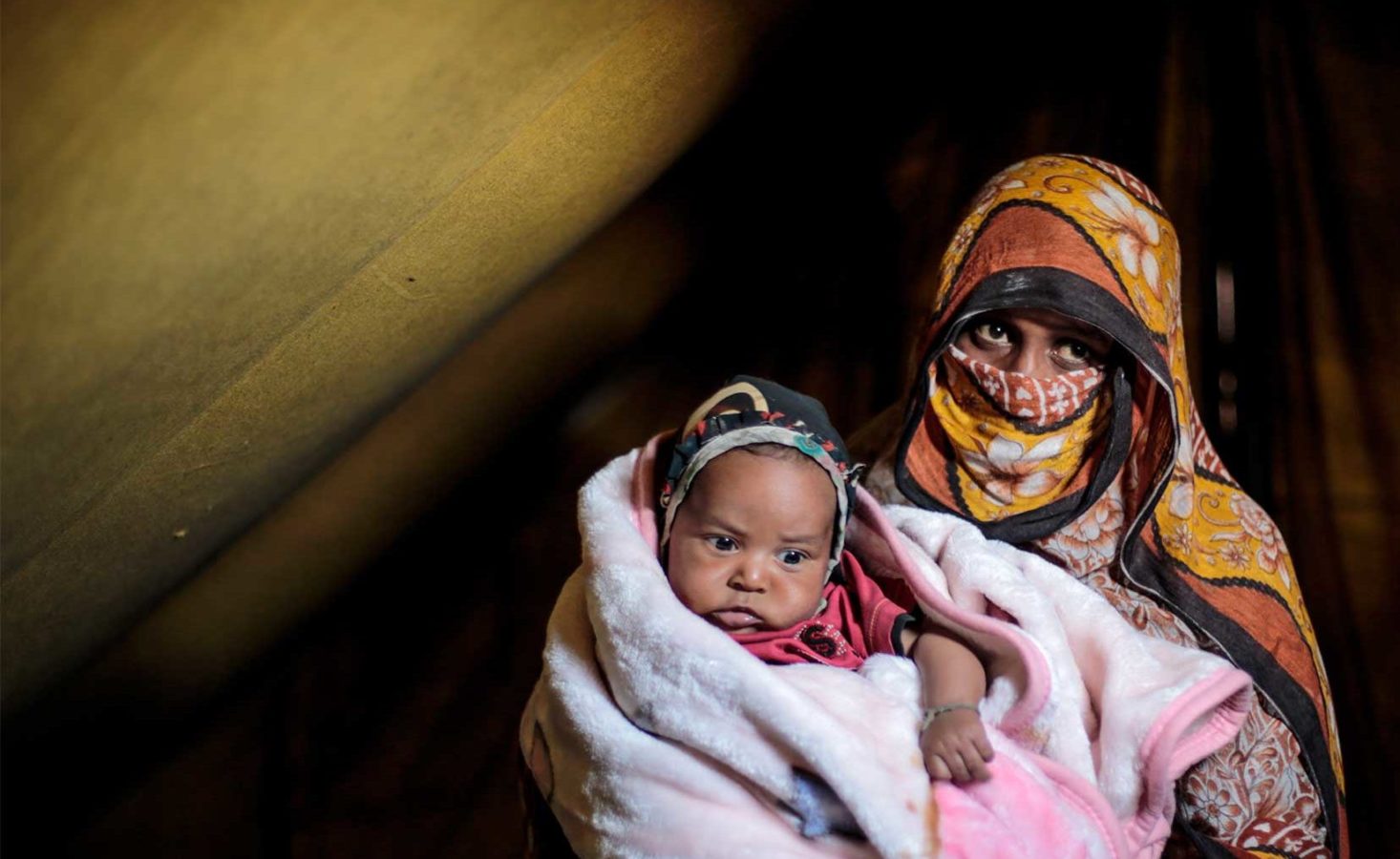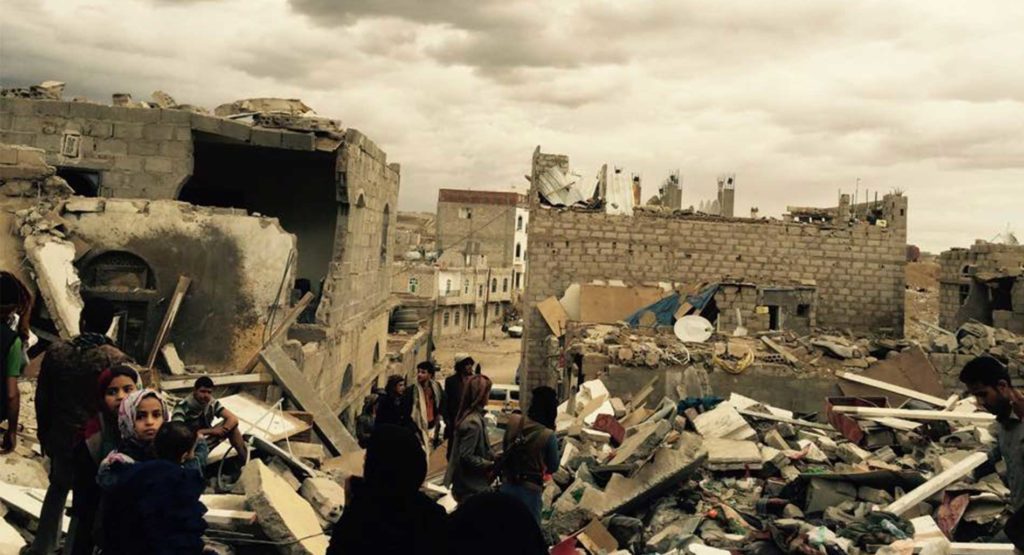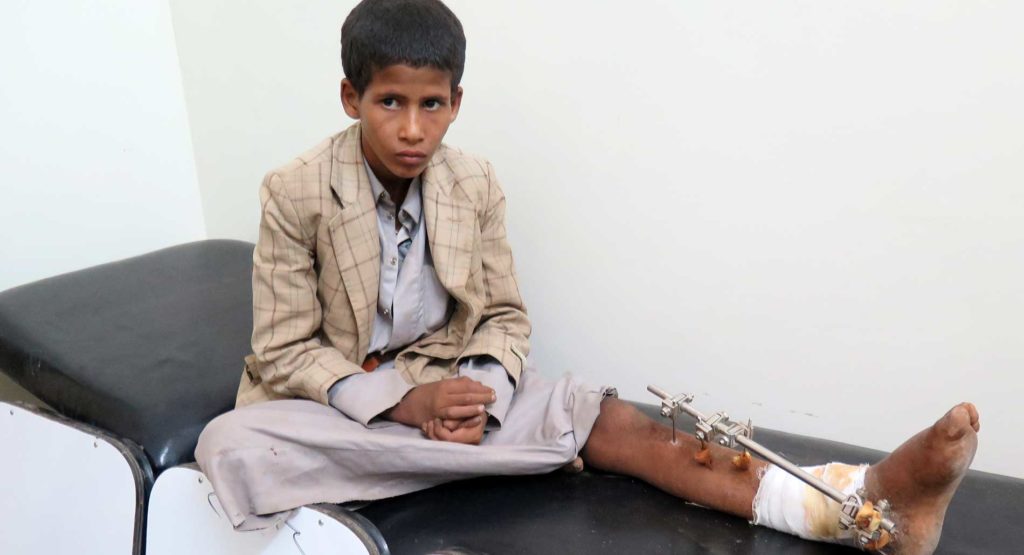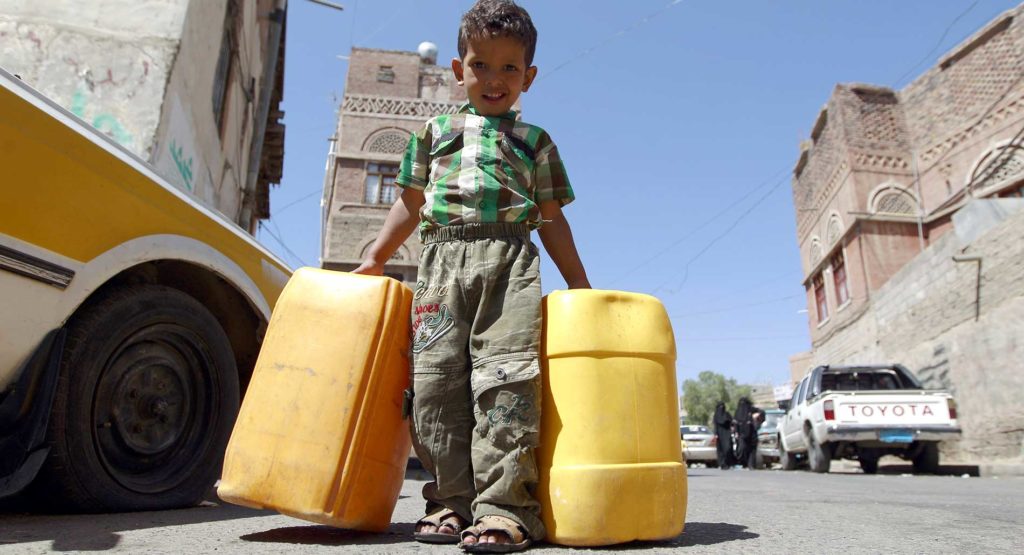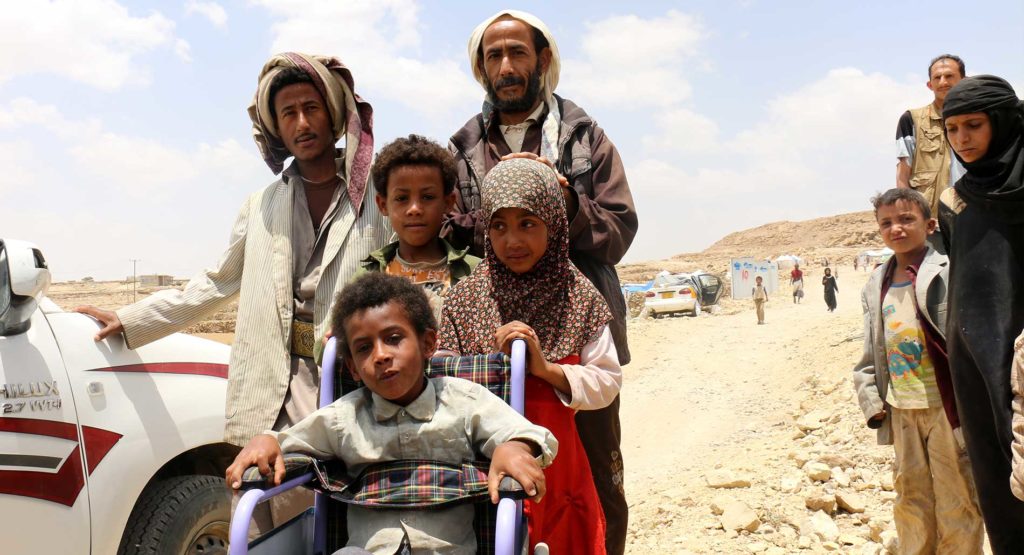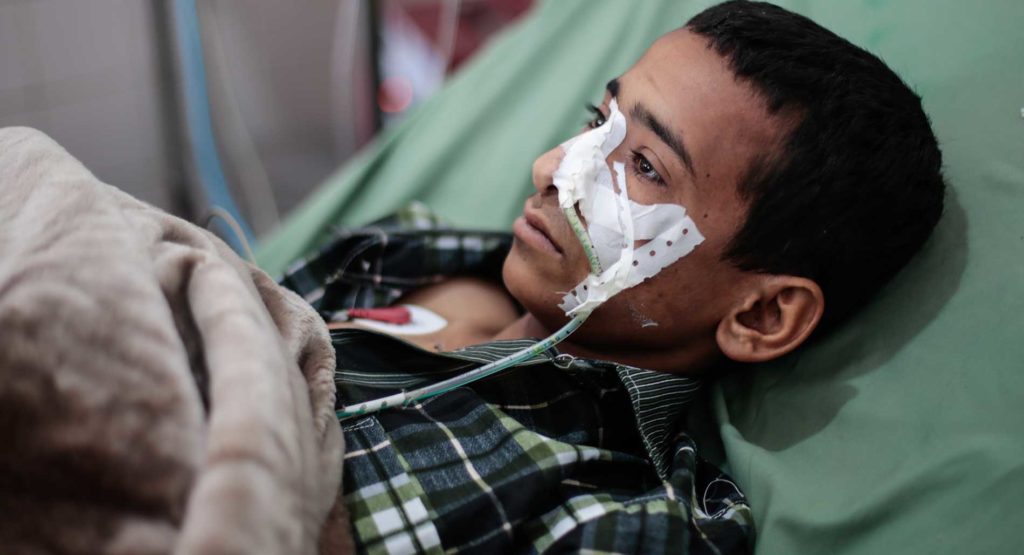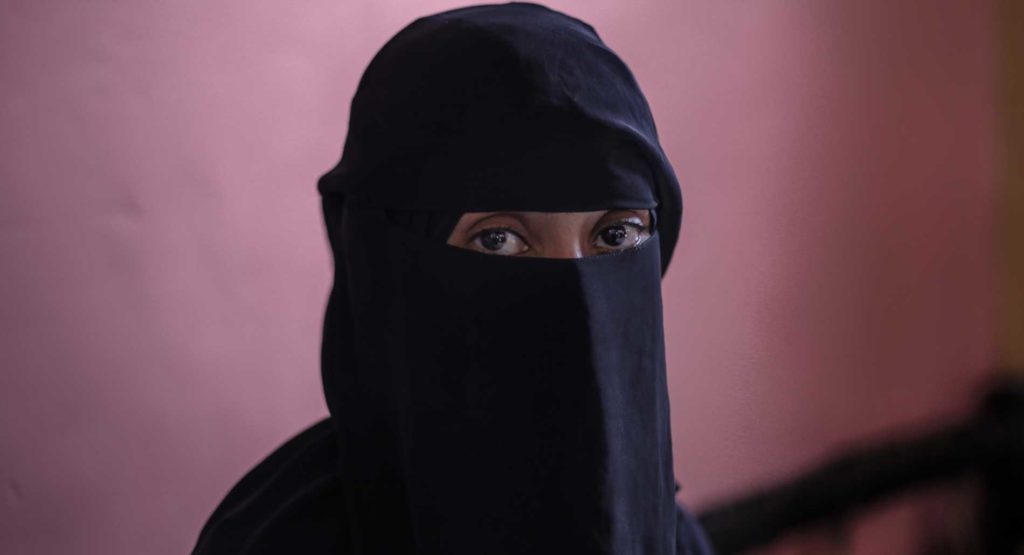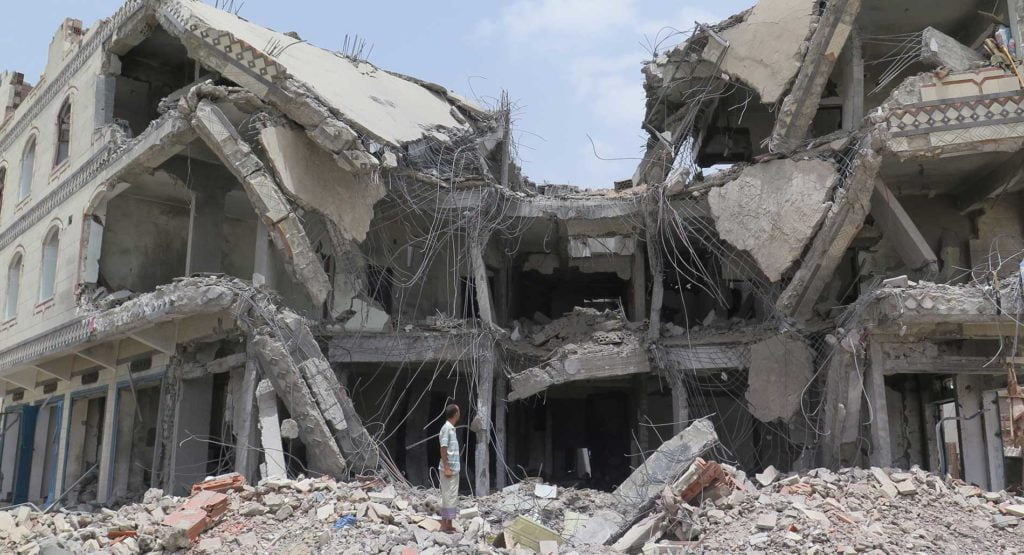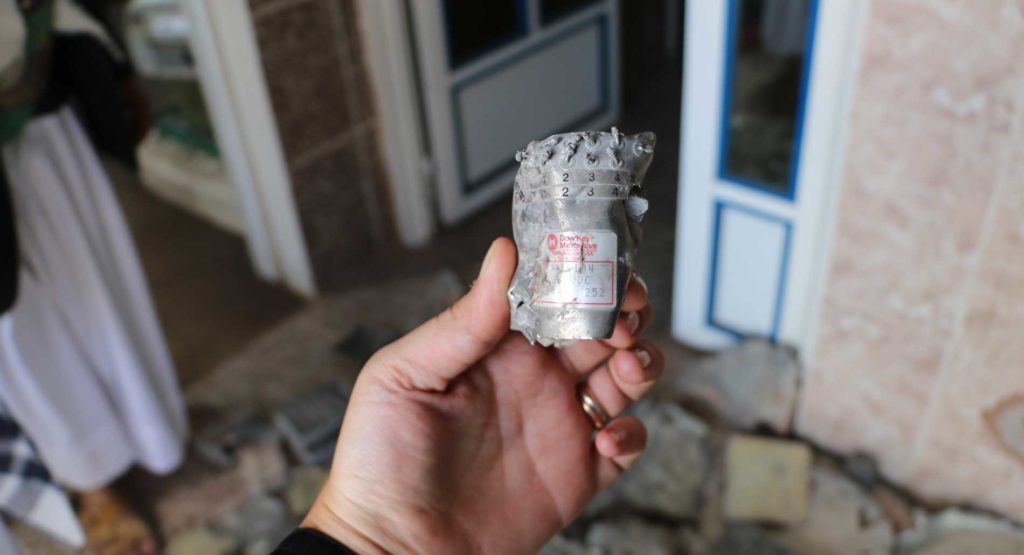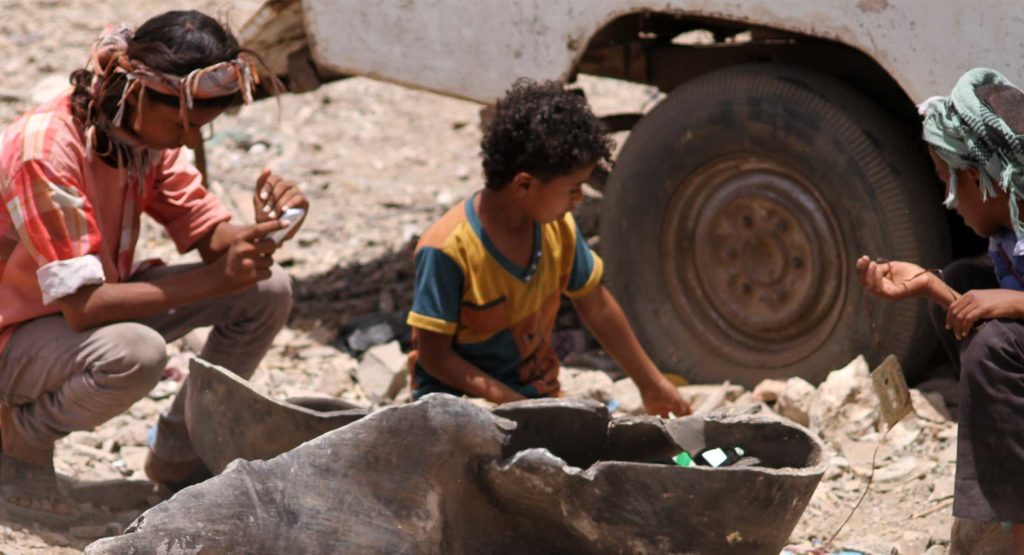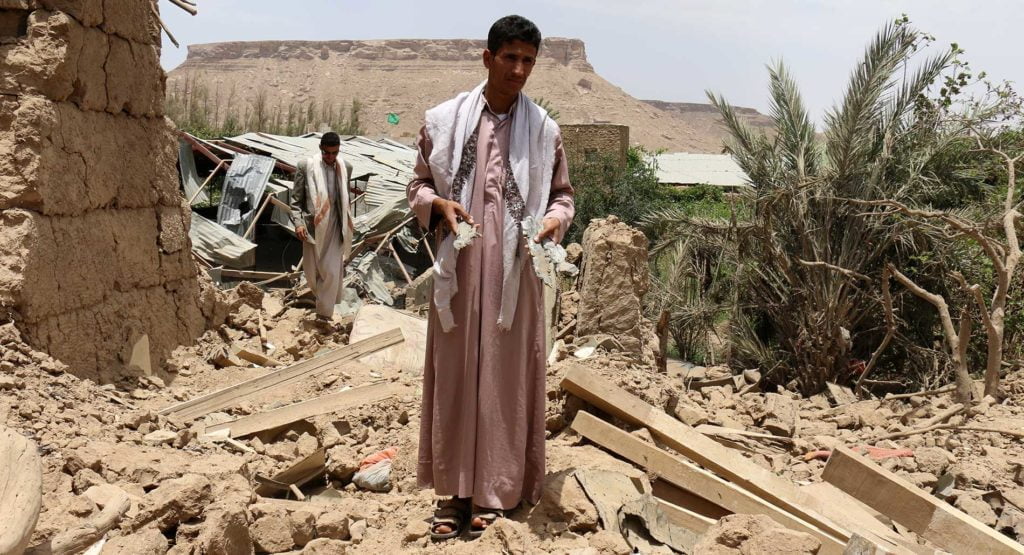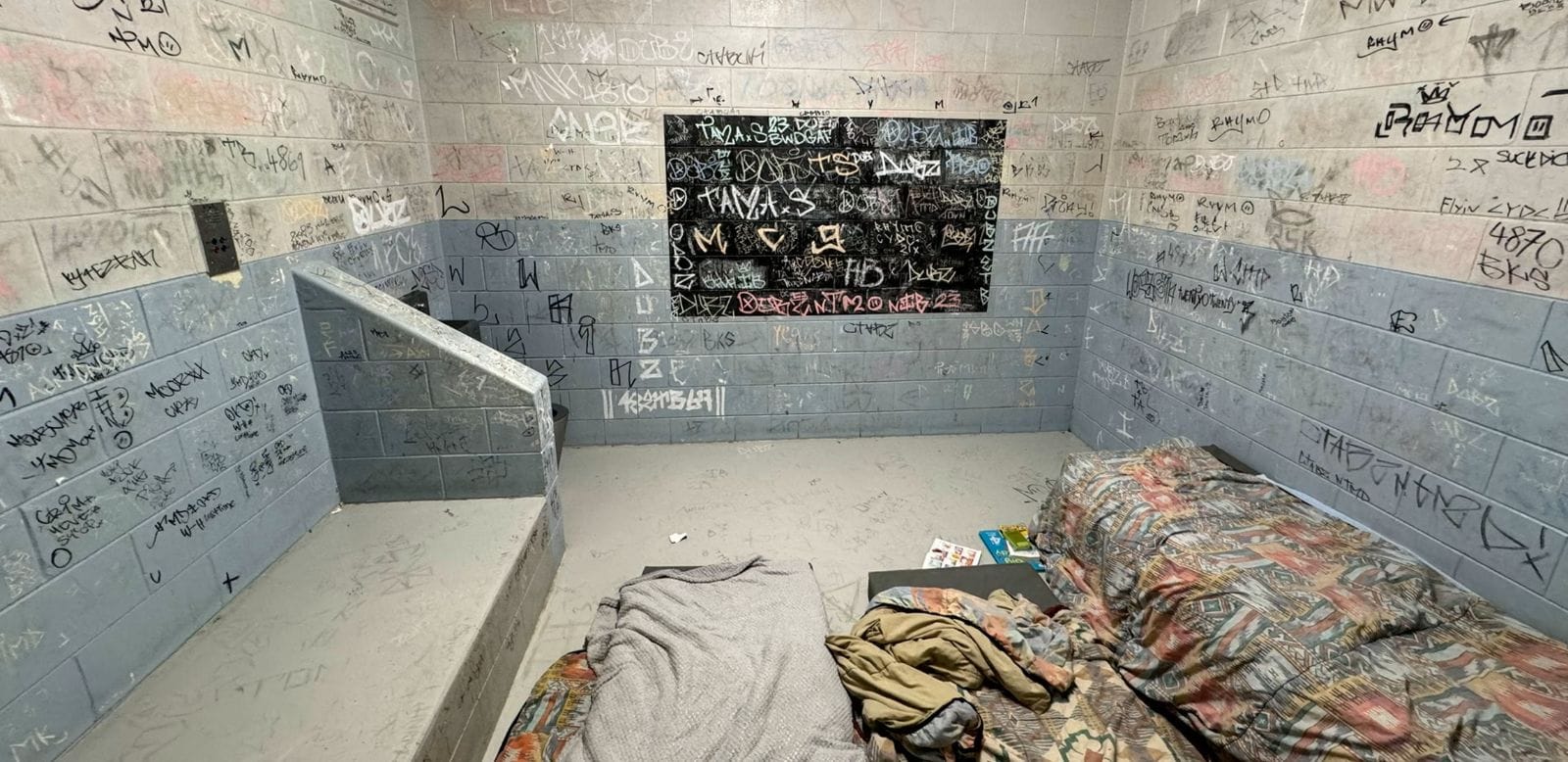Yemen
Currently in Yemen, the human rights situation is dire. All parties to the conflict are responsible for committing war crimes and other violations, including the bombing and shelling of civilian areas.
Both sides have used imprecise weapons, such as artillery and mortar fire in heavily-populated civilian areas, launching attacks from or near homes, schools and hospitals. Since the conflict began, up to 4,000 civilians have lost their lives and more than 6,700 have been wounded. Over 2.5 million people have been forced to flee their homes.
“I don’t know why they bombed us. We are just simple farmers, we grow qat and vegetables. We are poor and spend our time working to make a living for our families. They killed us for no reason.”
AMMAR MOHAMMED HALHAL, A 28-YEAR-OLD FARMER AND FATHER OF FOUR WHO SURVIVED A COALITION FORCES AIRSTRIKE
Who is fighting?
On one side of the conflict are the Huthis, an armed group belonging to a branch of Shi’a Islam known as Zayidism. The Huthis are allied with supporters of Yemen’s former President Ali Abdullah Saleh. On the other side are anti-Huthi forces that are allied with the current President Abd Rabbu Mansour Hadi and the Saudi Arabian-led coalition. See below for a timeline of events that lead to this conflict.
A timeline of the Yemen conflict
1993
2004
2009
2011
2012
2014
2015
2016
2016
Images from the forgotten war
What is Amnesty doing?
Amnesty International is sending researchers to the front line to uncover the human rights abuses that are occurring and calling for:
- All States to halt transfers of arms for use in Yemen by the parties to the conflict to ensure they are not supplied directly or indirectly to any party to carry out attacks in the country.
- The United Nations to set up an international commission of inquiry to investigate war crimes and human rights violations committed during the conflict, and ensure that all those suspected of committing them are brought to justice in fair trials.
- The international community and governments – in particular, the USA and UK – to publicly condemn the violations and war crimes being committed in Yemen and to support the establishment of an international commission of inquiry to investigate these crimes.
- All parties to the conflict to respect international humanitarian law – by taking all possible precautions to minimise harm to civilians, ending unlawful attacks, and granting full and unfettered access for humanitarian aid organisations.
This work is not possible without the generosity of our supporters. Please give generously to our Yemen Crisis Appeal so we can continue to fight for justice.
